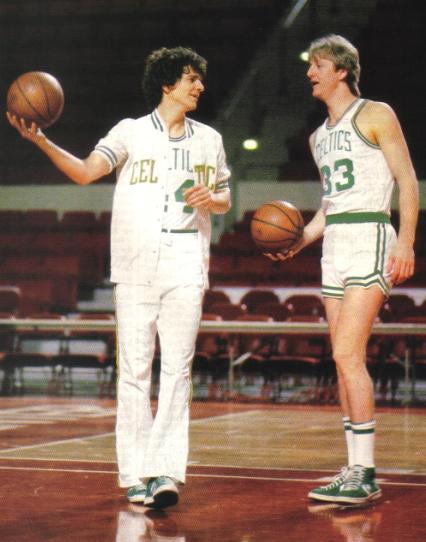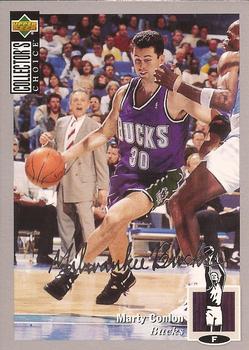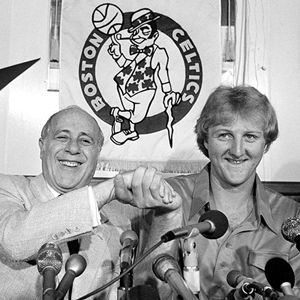
Schintzius Survives Pitino's Camp . . . Barely
January 25, 1999
Rick Pitino said he didn't think anyone would need to go the intravenous route during this training camp. He was wrong.
He said Dwayne Schintzius was a long-term project. He was right.
Schintzius was able to go through the Celtic paces yesterday at the FleetCenter after being forced to miss Saturday night's session in New Hampshire with what Pitino said was "a body that's sore in every single place."
The operative term for the 7-foot-3 center yesterday was survival.
"Barely," Schintzius said after he and his mates had gotten in their work before about 7,000 patrons who had gotten in free.
"I had to have five quarts of fluid yesterday. Double IVs. I set a Celtic record. Isn't that something? It's not something I'm too proud about."
It's good that while his fluids have been low, Schintzius' sense of humor has remained at a reasonable level. These are going to be difficult times for the former first-round draftee, who is attempting a comeback after playing just 15 games in 1996-97 and missing last season because of ankle surgery.
It is evident when he is lumbering up and down the floor in practice that he is not up to speed - or up to this speedy system.
"He can't even move," said Pitino, who was nonetheless encouraged by Schintzius' efforts yesterday.
"For him, this is going to be a long road back. We're going to work with him because he shoots well and passes well. But he's a long haul. The answer for us right now is (Tony) Battie in the middle.
"He, for us, is looking at a full summer and a fall and before that a lot of spring work. He has to build his body, and if he's willing to pay the price, we're willing to work with him."
Pitino is very understanding - for now - when passes Schintzius normally would handle easily go whizzing by his head.
"Coach has told me about that already, and it's called 'ring rust,"' Schintzius said. "He said to expect it. He called me in his office yesterday morning and said, 'We're going to work with you. Just remain patient, because it will get frustrating at times.'
"The main thing he wants me to do is work on my conditioning and then everything else will come back in time. And he said he is looking for me down the road to come in and help this team, but not to step in right away and be a contributing factor. But if that happens, it happens."
The fact Schintzius even made it through yesterday's drills and scrimmage without too much ill effect was one of the bright spots for Pitino.
"He looked pretty good out there," the coach said. "We didn't think we were going to get anything out of him until next September, but this is a sign he may be able to help us."
Being in front of an audience was certainly a pleasure for the affable Schintzius.
"I still have the rust, but it feels good to be back out there again with the crowd and just be somewhere where you feel like you're wanted and you fit in pretty good," he said.
"I'm just trying to get back into it again. I've been off of it for a year and a half and, you know, I am here to work. That's the main thing I came here for, and I'm getting better every day. Except for cramping up and feeling like I'm going to die - other than that, I feel super.
"But that's just the little stuff, right?"

















